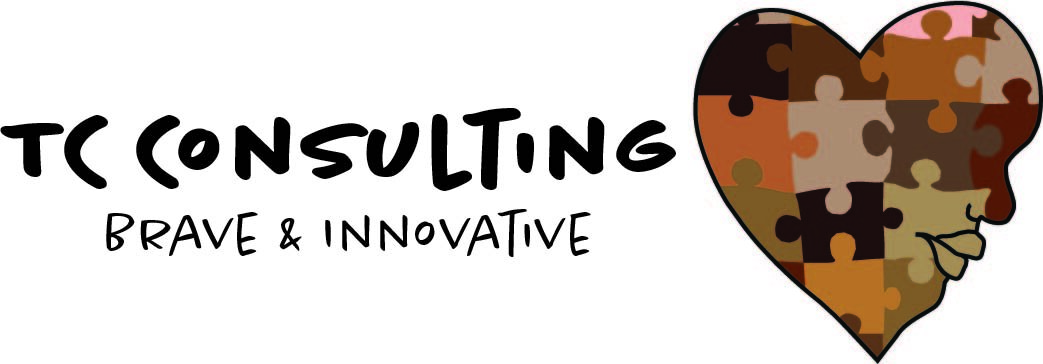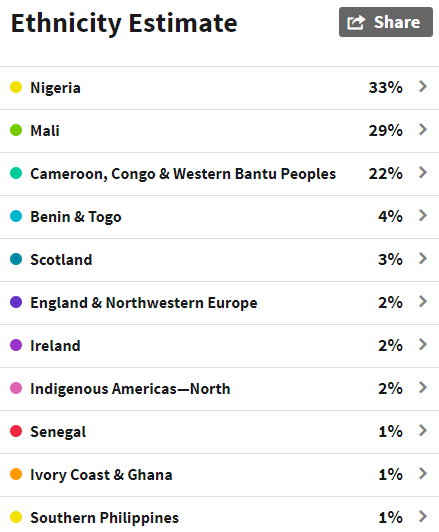Blog graphic
For years, from childhood to adulthood, I have been wanting to know more about my ancestors. I would ask a series of questions to my parents. Where did my ancestors come from? What did they experience? What were their dreams? What have we passed down from generation to generation? My mother has little knowledge of her ancestors, and my father was adopted with no connection to his biological family. My father has people who know his biological family and they refuse to share any information as if my father is not welcomed. When I learned this as a child my heart was saddened, and I was glad that my siblings and mother are able to provide the loving family he deserves. Something to learn about me is when people try to negatively restrain me or the ones I love, I will seek to find a way to overcome the situation. I might never know about my father’s biological family, yet what I can do is learn about what is in my bloodline and potential relatives based on shared DNA. With the limited awareness of my cultural heritage and the relentlessness of not sharing regarding my father, I longed to do an Ancestry DNA kit to have insight into where my ancestors originated from. This fall I was able to purchase a kit, and below are my results.
Tanaisha holding the Ancestry DNA Kit.
When I received the email that the results were in I was nervous and excited. I was nervous about the history attached to my bloodline, such as enslavement and colonization. Being Black, I knew that enslavement and colonization were a part of my cultural heritage, and a deeper awareness of that trauma would be processed differently on mental and emotional levels. Since I was a child I felt that my bloodline would be a mixture of cultures. Hence, I was excited to see a map of how my ancestors migrated from different places and learn more about the history of my people.
Tanaisha’s Ancestry DNA results.
My feeling of being a mixture of cultures was spot on with being 90% African, 3% Scottish, 2% Irish, 2% European, 2% Indigenous Americas-North, and 1% Southern Filipino. It was bittersweet learning about the mixture of my bloodline. I was fascinated by the various African cultures in my bloodline. I was surprised by the 10% of the rest of my bloodline. I know the other percentages are small, and still those small amounts of DNA are a part of my ancestors. This journey was bigger than me. It was an opportunity to pass on insight about my cultural heritage to my current family and future relatives. Sharing my results with my family was needed. Everyone was intrigued by my DNA story. Overall, I was so glad to know what is in my bloodline, see a map of where my ancestors came from, and share it with my family.
How is my bloodline a story of adversity and growth? My ancestors endured many adversities, such as colonization and enslavement, which likely resulted in my DNA being intertwined with various cultures. Also, my ancestors were not always enslaved or colonized. With both truths in mind, it is empowering to process the trauma of enslavement and colonization with a deeper understanding of where my ancestors originated from. Additionally, it is empowering to learn about the rich history of my people before the adversities, how they overcame them, and how they live today. As a descendant of enslaved Africans the right to knowing my cultural heritage was restricted. So, the growth for me is not settling with the generic racial category of Black. This DNA journey was about exploring my cultural heritage and reclaiming ownership of my narrative to learn what my Blackness entails and what other cultures exist in my bloodline. My cultural history matters to me because this world has oppressive ways of being from then to now that continue to be adapted and sustained. These oppressive ways of being seek to limit who I am and what I strive to do. With this awareness, I can learn from my ancestors’ lived experiences and forge ripples of social change over my lifetime and inspire future generations to do the same in their own way.




